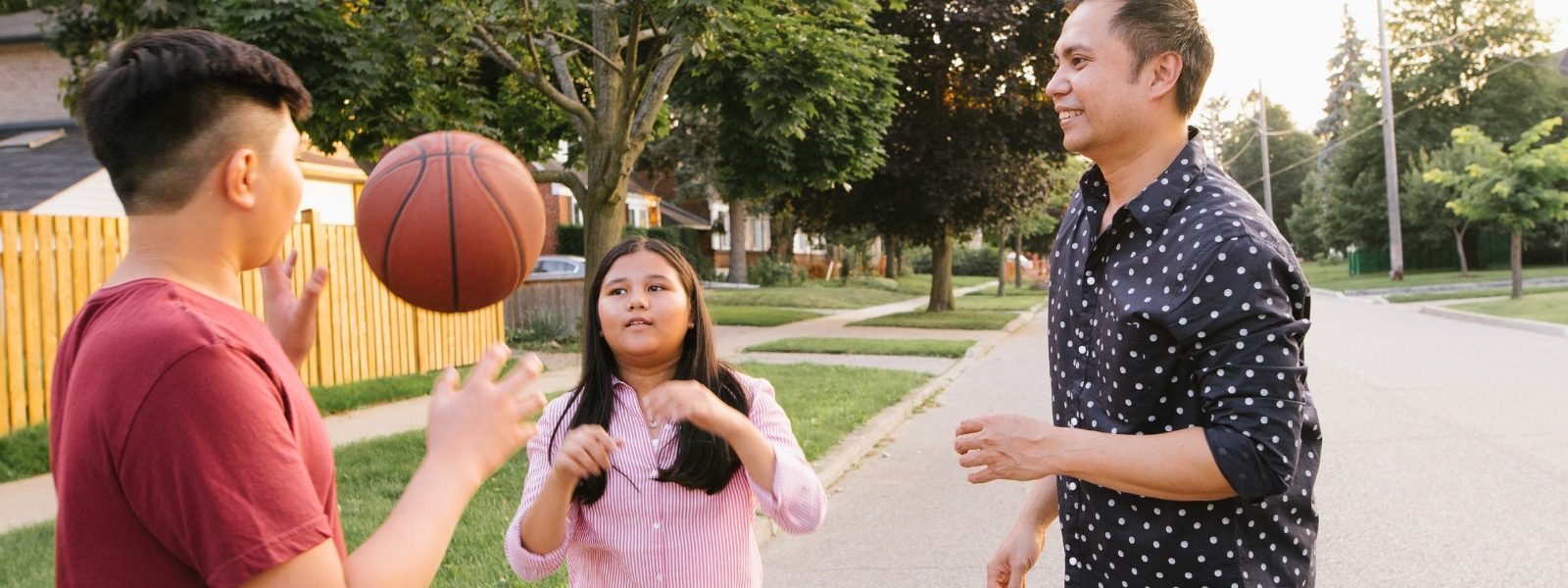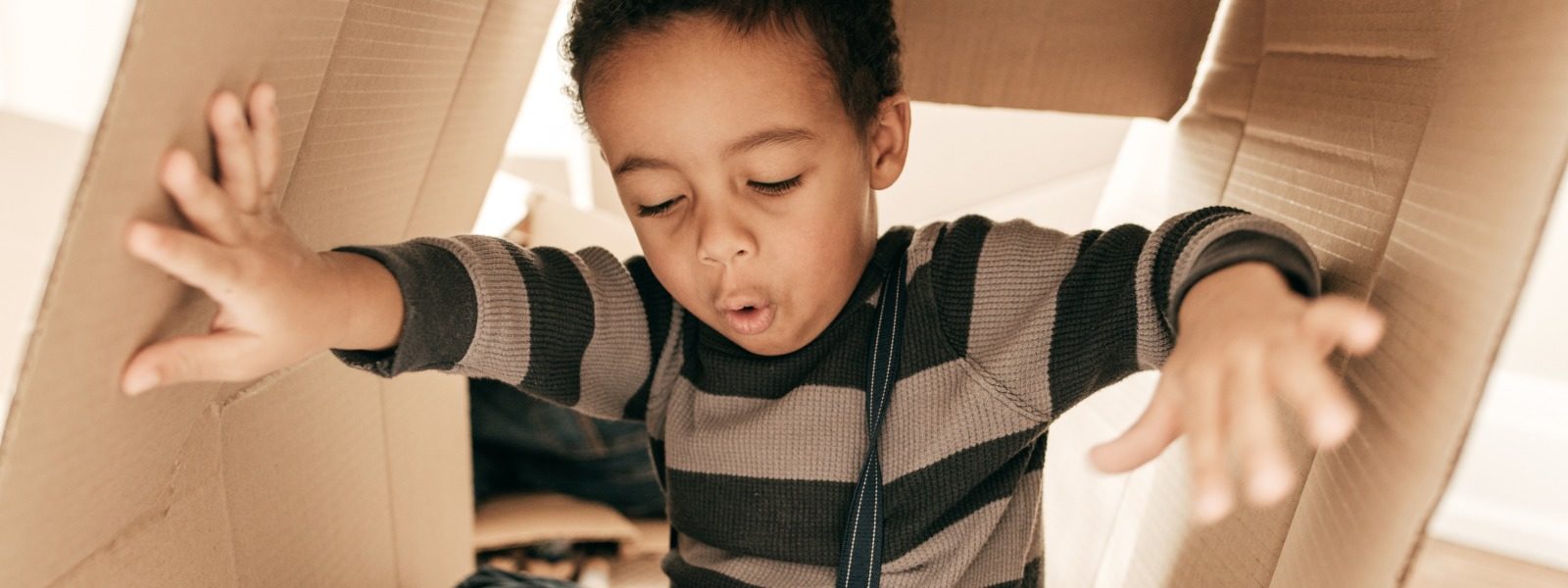“PUG BREAK!!!” my six-year-old shouted. I heard my oldest’s feet pounding towards the kitchen and I quickly to ran down to join them. Despite the pandemic causing us to mentally and physically feel like we are often stuck in thick jello, the call for a well-timed “Pug break” during a day of distance-learning-work-juggling evokes a special urgency. By the time I reached the kitchen, the kids had already collapsed in delighted laughter as my youngest proudly scrolled through Google images displaying the world’s cutest pugs. Before long, and no doubt inspired by the image of a pug in sunglasses, he was leading us in a new dance move (picture dabbing while yelling “Pug Out!” over and over again).
It was ridiculous. I didn’t have time for it. But we all felt better and more positive after the Pug Break than before.
Plenty of times during the last nine months we have felt stuck in our family – stuck in a rut, stuck in overwhelm, stuck in stress. We strain and strengthen our toolkit to move through these feelings, including practicing gratitude, emotion coaching, apologizing, and creating family rituals.
But as stress piles on, us grown-ups can get stuck in another kind of rut even as when we think we are using all of our best tools: Being too serious.

Before I go on, let’s be clear there is A LOT that needs to be taken seriously right now. Whether it is the ongoing struggle for racial justice, health inequities, the climate crisis or attending to our own mental health – this time demands our serious and sober attention. But the science reminds us that play is not a frivolous diversion from the things that matter most. Instead, for young children, teens, and grown-ups alike, play can fuel our engagement with each other and the world, not distract from it.
Our spontaneous Pug Break might not seem like real play because there wasn’t a ball, game board, dress up clothes, or blocks. But it was most certainly playful. It succeeded in softening my furrowed brow, drawing out shared laughter, and providing a much-needed positive shift in our interactions. Researchers define play as any activity that we are intrinsically motivated to do (in other words, it isn’t required or entirely prescribed), that we actively engage in, and that results in “joyful discovery.” Regardless of the technical definition, most of us can feel when we are in “play mode.”
If you need an excuse to add play to your pandemic parenting toolkit, here are a couple of powerful reminders from the research:
Play Strengthens Connection
A couple of weeks ago I was stuck in a low level negative rut with my oldest. It seemed as soon as we worked through one conflict we would fall right into another. We had talks and problem-solved but the pattern stayed stuck. So I made a deal with myself: every day for the next three days I would play with him. It didn’t have to be long but it did need to be real. No agenda, no prescriptions, no productivity – just kid-led play mode. We weren’t even two days in when it was clear that a couple days of playing (no-rules soccer in the backyard) was doing more for our relationship than a week of talking.
Research backs this up. In a world of maximum distractions and strain, play is a rare opportunity to engage fully with kids, see things from their points of view, and enjoy each other. According to the American Academy of Pediatrics, play helps build “the enduring relationships” that kids need right now.
Play Builds Brains
As school goes online during the pandemic and playgrounds are more empty, we shouldn’t lose sight of how play powers the learning brain. Too often, play takes a subordinate role to more ‘serious’ and structured activities designed to help children excel in school. Play, as the thinking has been, is where kids blow off a little steam in order to get back to the important work of learning.
Yet research has shown that free play activates and strengthens executive function skills which are a strong predictor of success in school. It turns out that play gives kids the chance to practice skills like:
-
-
- Developing and maintaining goals
- Negotiating conflict and building social skills
- Managing risk
- Creative problem solving
- Regulating feelings and behavior
-
Far from being irrelevant to so-called academic learning, these skills form the foundation for it.
Play Protects Mental Health
As stress increases in kids’ lives, play becomes even more important. Sharing joy, moving our bodies, and synching interactions with others helps kids regulate their stress response. Indeed, the American Academy of Pediatrics recently outlined evidence that supports pediatricians in “writing prescriptions for play” for healthy child development. Instead of reserving play for good times, we should be sure to prioritize it during challenging times as well.
Play Helps Us Process Fear, Worry, and Loss
We shouldn’t be surprised to see young children busily building “COVID emergency rooms” with blocks or putting homemade masks on all of their stuffed animals. Likewise, older kids might take out the board game “Pandemic” and bend some rules as a cathartic exercise in eliminating a virus on the board that they have little control over in real life. Psychologist Seth Aronson argues that “One of the functions that play serves for kids is it allows them to approach something that might be frightening in a way that makes it less frightening and more understandable.”
Play is Not Just For Young Children
While teens might resist calling any of their activities “play,” now is a time to encourage activities where teens get to shift into play mode. The pandemic is a mismatch for the developmental tasks of teenagers, whose jobs are to gain independence, take risks, and forge an identity outside of the family. Considering COVID limitations, they need play now more than ever.
Play offers teens opportunities to have agency and control, learn from their mistakes, and carve out space for themselves. Plus they deserve joy when many of their typical joy-producing activities are off limits or feel different.
Play isn’t a diversion from what’s happening in the world right now, it will help us engage in it.
Far from a frivolous and unproductive distraction, play helps us practice creative problem solving, perspective taking, norm setting, collaborating, and, imagining alternative futures. Building more just and equitable communities during a global pandemic is serious, difficult, and demanding work. It also demands “joyful discovery” of what is possible and the energy to move towards it.
So let’s continue to take seriously the work of helping ourselves and our kids name, process, and move through their feelings during this challenging time. But let’s not forget to be playful as well – not just to fill up free time but as an investment in our capacity, relationships, and resilience.
Tips for young children:
- Let your child lead. Instead of “showing them how to do it,” let your child control the direction of play.
- Participate when invited. Part of letting your child take the lead is participating when invited! Don’t be afraid to mimic their gestures and voices as you participate.
- Enjoy all kinds of play – inside, outside, free play, guided play, all the play.
- Don’t overprotect kids from rough-and-tumble play between siblings and peers as long as basic safety precautions are followed,
- Ask your child questions about what they are doing and creating. Ask them to consider other people’s perspectives and use creativity to solve problems.
- Encourage the use of every day objects like blankets, chairs, pots, rocks, or sticks. Before you know it these might become forts, caves, etc…
- Help your child problem solve if they get frustrated or stuck but try not to rescue them. Ask them, how do you want to solve this? What do you want to try next?
- Go outside.
For Teens:
- Be open. Your teen’s play style and preferences might not be the same as yours
- Enjoy pick-up sports and focus on the game itself more than the outcome
- Get out board games – especially role playing games
- Engage with technology together and choose games that are open-ended and creative
- Gather art materials.
- Encourage the use of every day objects like wood, recycling,
- Encourage “noodling” on instruments and creating music
- Use techfor collaborative board games
- Encourage new hobbies
- Go outside
For Adults:
- Take a deep breath. Now another one. Relax your shoulders. Unfurrow your brow. Do it again.
- Go with it. Give yourself permission to follow your kid’s lead – even if it seems too tiring right now.
- Be spontaneous. Just trying something (anything) new can help shift us into play mode.
- Find playful moments. Don’t worry about setting aside time for long games. Put on loud music while cooking, share a silly video with your kids, or try a new dance move,
- Schedule it. This might seem counterintuitive, but sometimes putting something on your list reminds you to do it.
All Ages:
Be silly. Take a Pug Break.
